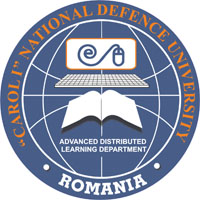NEVER TOO OLD TO LEARN: THE AGELESS JOY OF LEARNING
NEVER TOO OLD TO LEARN: THE AGELESS JOY OF LEARNING
Author(s): Cristian Arhip, Ovidiu Ursa, Rodica Gardikiotis, Irina Gheorghiu, Cintia Colibaba, Anca ColibabaSubject(s): Education
Published by: Carol I National Defence University Publishing House
Keywords: intergenerational learning; benefits; reciprocity; ICT; communication
Summary/Abstract: The paper is a study based on two projects (Grankit and My Story) funded by the European Commission (under KA3 ICT / GRUNDTVIG Multilateral) as they were implemented by Euroed Foundation, Iaşi and having as one of the target groups a group of students studying at the School of Medicine in Iaşi. Both projects start from a real phenomenon which Europe is facing nowadays: the World population is ageing. The economic effects of an ageing population are considerable. As a result, new policies, mechanisms and strategies need to be promoted and developed as these initiatives could ensure that ageing can be a creative and active experience for all, rather than a negative and frustrating one. Our societies have to promote solidarity between different groups of people, young and old. It is our belief that the more socially integrated the elderly are, the more our society will have to gain. The more grandparents participate in family life, the stronger family bonds are. This will positively affect the younger generation (grandchildren) who are more and more exposed to social problems. The article presents several opportunities explored by the projects as well as the strategies developed in order to help bridge the gap between different groups of people and different generations. The article analyses the intergenerational learning opportunities provided by the projects, highlighting the exchanges of ideas and experiences between generations. Ageing is perceived as positive and dynamic; both generations share the same joy of learning. The benefits for both generations in terms of participants’ well-being, social integration, communication and ICT skills are also considered.
Journal: Conference proceedings of »eLearning and Software for Education« (eLSE)
- Issue Year: 11/2015
- Issue No: 03
- Page Range: 403-408
- Page Count: 6

